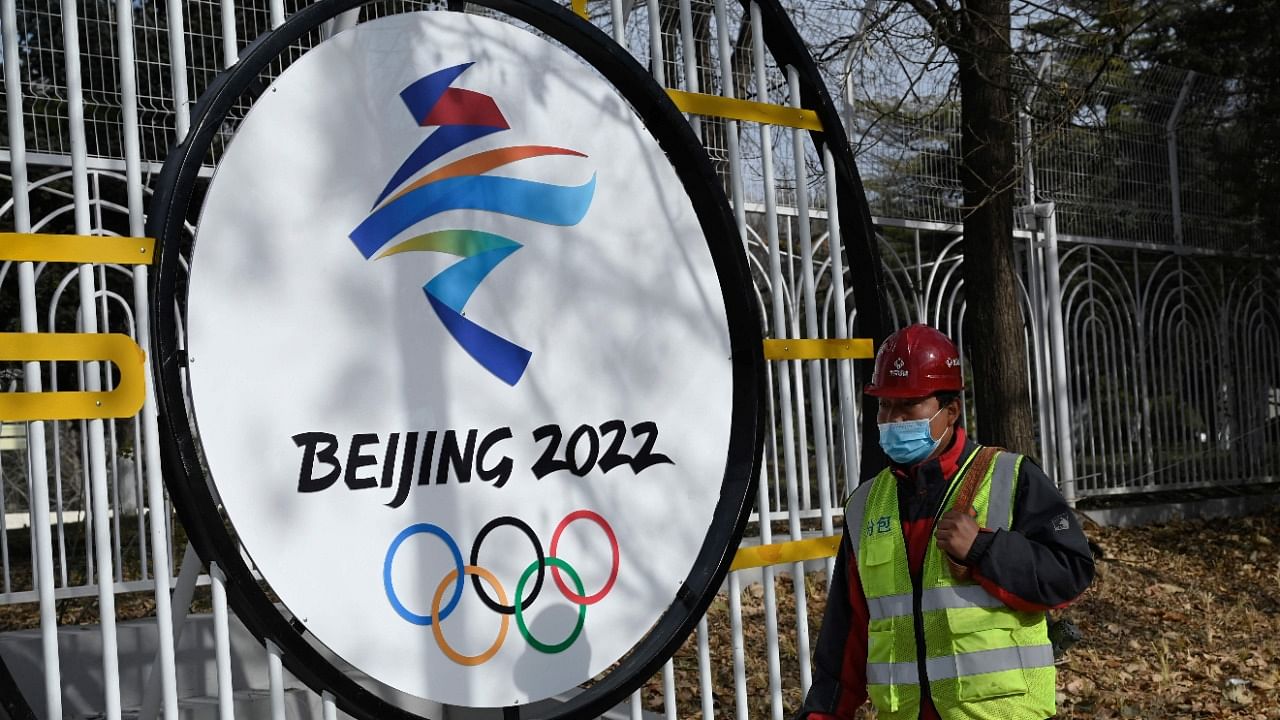
The decision of the United States of America to keep away its officials from taking part in the Beijing Winter Olympics early next year puts the spotlight on the quadrennial event turning into a diplomatic weapon.
The diplomatic boycott that the US announced on December 6, followed by similar moves by Australia, Canada, Lithuania and New Zealand, suggests the list of countries intending to stay away from the games is growing.
In a departure from past instances of Olympics boycotts, athletes would participate in the event, a concession to those who yearn for participation and glory at this most prestigious sporting spectacle. The Olympics, founded by French Baron Pierre de Coubertin, with the first edition of the Summer games staged in Athens in 1896, survived two World Wars.
The US has decided to protest against China's "human rights abuses, and atrocities in Xinjiang" as domestic opinion builds around reports of treatment meted out to Muslim minority Uighurs in the region, a charge Beijing rejects.
Opinion on the efficacy of a boycott of officials and diplomats as the one envisaged now or the earlier version where athletes were prevented from participation remains divided. The situation is still evolving in the current context, and days after Washington dropped anchor, France thought the decision was not worthy of emulation.
French President Emmanuel Macron argued against the politicisation of the Games characterising the diplomatic boycott as "insignificant and symbolic". In the world of realpolitik, the decision by the French could be seen both from the prism of pragmatics since Paris will host the Summer edition of Olympics in 2024, and its emerging strains with the US over the creation of AUKUS, the military alliance between Australia, the UK and the US resulting in Paris losing a major submarine deal it entered earlier with Canberra.
Russian President Vladimir Putin's announcement of his intention to travel to Beijing for the inauguration on February 4 is to send a strong show of solidarity with a country Moscow is working closely on issues of contemporary challenges.
Countering the US moves, Beijing is garnering support. On November 30, the China-Africa Summit attended by 53 countries of the continent adopted a declaration supporting the Winter Games and were against politicising the event. Days earlier, the Russia-India-China Foreign Ministers expressed support to China to host the 2022 Winter Olympics and Paralympics Games in a joint statement.
Ironically, these decisions came in and around the backdrop of a UN resolution, "Building a peaceful and better world through sport and the Olympic ideal". Adopted by consensus at the 76th Session of the United Nations General Assembly, the resolution co-sponsored by 173 of the 193 member states is a symbolic exercise undertaken since 1993.
The document also called for observing the Olympics Truce for the 2022 Games from seven days before the start. The reference to Olympics Truce is historic. Established several centuries ago in ancient Greece, it allows all athletes and spectators from states in the state of conflict to participate in the Games.
There were several such boycotts during the last century, but none so prolonged, marring four consecutive editions of the Summer Games between 1976 and 1988. At the Montreal Games, several countries from Africa did not take part after demanding that New Zealand be kept away as its Rugby team toured South Africa practising the policy of apartheid.
The first significant political messaging of boycott came in 1980 when over 60 countries led by the US did not send their athletes to Moscow to protest the Soviet Union's action in Afghanistan. In many countries that did not send teams, the domestic opinion was upset over the denial of a once-in-lifetime opportunity for the sportspersons to showcase their prowess at these Games. The intended impact made little difference as the Soviets stayed put in Afghanistan until much later.
The cycle continued, and expectedly countries in the Soviet Bloc retaliated and once against it resulted in a boycott of the 1984 Los Angeles Games on security concerns. By the time 1988 arrived, the then International Olympic Committee president Juan Antonio Samaranch brought his skills as a career Spanish diplomat to persuade countries to return to the 1988 Seoul Olympics. Barring a handful of countries, including North Korea, which had no diplomatic relations with South Korea and Cuba, the participation was a near full-house. Since then, the overwhelming opinion has been that boycotts do not serve much of a purpose, and the athletes are the ones who pay the price.
It also goes against the now modified "Faster, Higher, Stronger-Together" Olympic Motto adopted at the 2021 Tokyo Games staged in the pandemic era. Now that the US and a few countries have rekindled this form of protest, will it reignite yet another cycle of reprisals, or will the spirit of the Olympics return? The 2028 edition of the Summer Games to be hosted by Los Angeles should provide an answer.
(The writer is a journalist based in Delhi)
Disclaimer: The views expressed above are the author's own. They do not necessarily reflect the views of DH.